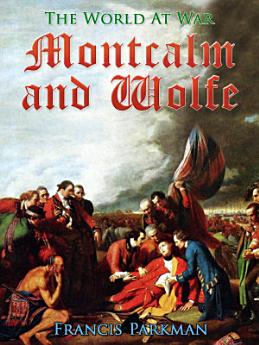Montcalm and Wolfe
Sep 2016 · Otbebookpublishing
Ebook
668
Pages
family_home
Eligible
info
reportRatings and reviews aren’t verified Learn More
About this ebook
Francis Parkman, Jr. (September 16, 1823 – November 8, 1893) was an American historian, best known as author of The Oregon Trail: Sketches of Prairie and Rocky-Mountain Life and his monumental seven-volume France and England in North America. These works are still valued as historical sources and as literature. He was also a leading horticulturist, briefly a Professor of Horticulture at Harvard University and author of several books on the topic. Parkman was a trustee of the Boston Athenæum from 1858 until his death in 1893. Many of the great 19th century American historians -- such as Francis Parkman, John Lothrop Motley, and William H. Prescott -- are good enough to be considered as literature. This, the last volume of Parkman's six-volume history of the French in North America, is probably the best of all. It covers the French and Indian War from the point of view of the French, the American colonies, the British, the Indians, and the Acadians.
About the author
Francis Parkman (1823-1893) was an American historian and writer whose vivid narratives and meticulous research brought the early history of North America to life. Born into a prominent Boston family, Parkman was educated at Harvard, where he developed a passion for the wilderness and the frontier, experiences that profoundly influenced his later work. Despite suffering from debilitating health issues, including partial blindness and chronic pain, Parkman's determination led him to traverse rugged terrains and immerse himself in the cultures he wrote about.Parkman's literary contributions are monumental, particularly his seven-volume series, "France and England in North America," which remains a cornerstone of historical literature. His works are celebrated for their rich detail, narrative drive, and balanced portrayal of complex historical events and figures. Parkman's ability to weave personal adventure with historical analysis set a new standard for historical writing, blending the rigor of scholarship with the allure of storytelling.Controversially, Parkman's portrayal of Native Americans has been critiqued for reflecting the prejudices of his time, sparking ongoing debates about historical interpretation and cultural representation. Despite this, his influence on contemporary writers is undeniable, inspiring figures like Theodore Roosevelt and shaping the genre of historical narrative.Parkman championed the revolutionary idea that history could be both scholarly and accessible, a legacy that endures in modern historical writing. His life and work continue to intrigue readers, offering a window into the tumultuous and transformative periods of North American history.
Rate this ebook
Tell us what you think.
Reading information
Smartphones and tablets
Install the Google Play Books app for Android and iPad/iPhone. It syncs automatically with your account and allows you to read online or offline wherever you are.
Laptops and computers
You can listen to audiobooks purchased on Google Play using your computer's web browser.
eReaders and other devices
To read on e-ink devices like Kobo eReaders, you'll need to download a file and transfer it to your device. Follow the detailed Help Center instructions to transfer the files to supported eReaders.








